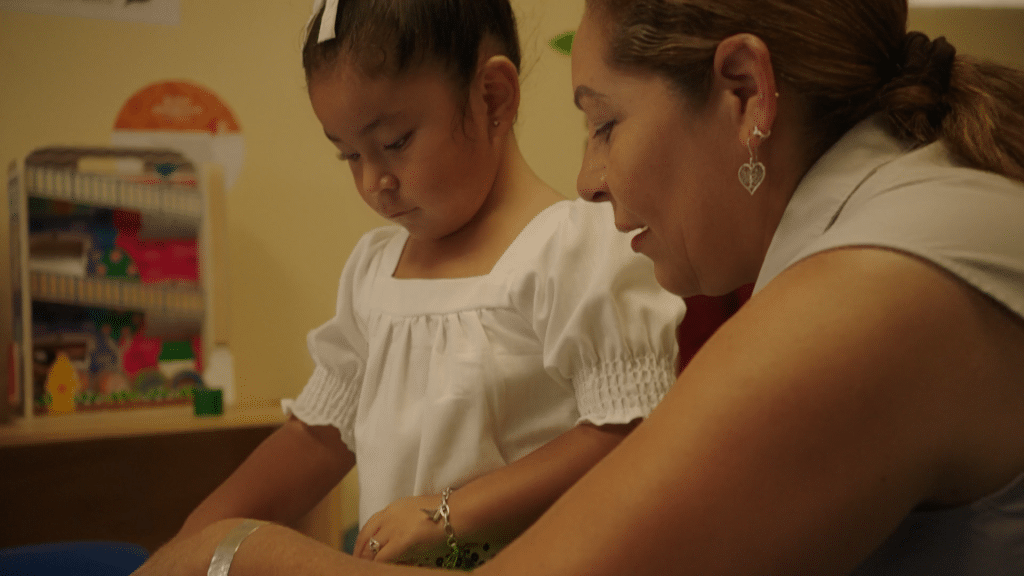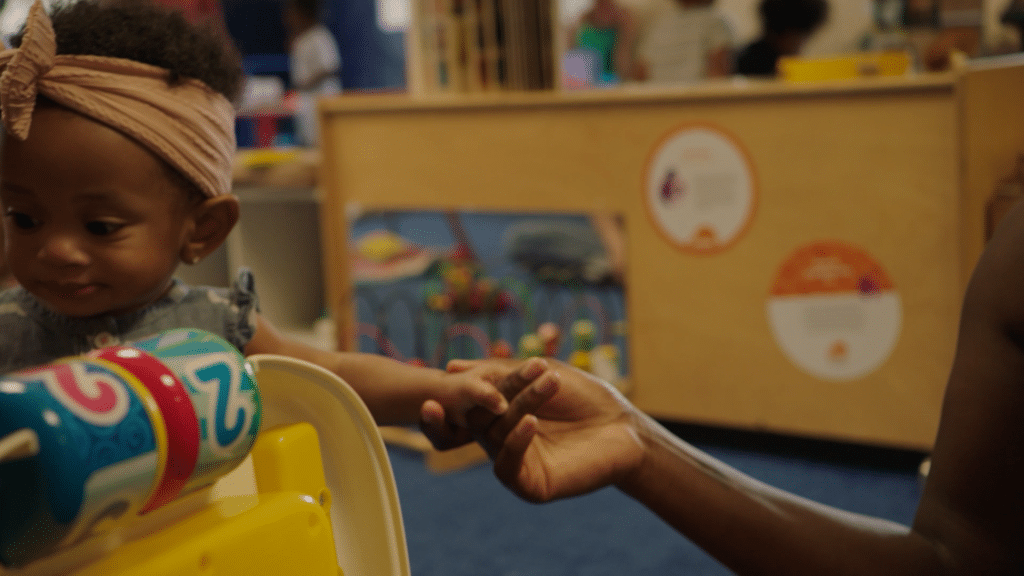For 60 years, the David and Lucile Packard Foundation has invested in improving lives and communities. And as the world has evolved, so has our work.
We recently explored how we could further evolve to more rapidly and effectively realize our vision of a just and equitable world. This effort put a spotlight on the central role the U.S. democratic system must play in creating long-lasting, positive change.
Our grantee partners have often used advocacy, community organizing, and other tools of the democratic system to advance their work, and these approaches depend on a healthy and functional democracy to be effective. Yet today, the U.S. government is struggling to meet people’s needs, trust in institutions and each other is declining, and support for authoritarianism is growing here and around the world.
We believe that a more robust, inclusive, and responsive democracy in the U.S. is essential in and of itself, and as a tool to accelerate progress and ensure long-lasting solutions. Recognizing this, we have expanded the Foundation’s focus to include strengthening the resilience of U.S. democracy through a Democracy, Rights, and Governance initiative.
We sat down with Kelly Born, the Foundation’s inaugural Democracy, Rights, and Governance director, to learn more about the vision, strategy, and approaches behind this new initiative.
What would it look like for our U.S. democracy to live up to its full potential?
Our vision is of a thriving, resilient, pro-equity democracy that effectively meets the needs of a politically, racially, and religiously diverse America. This aspiration goes beyond simply avoiding immediate threats; instead, we aim to reimagine our democracy so that it meets the demands of our time and can withstand changes and challenges. We envision a system of democracy that protects everyone’s fundamental rights, fosters equity and justice, and encourages positive engagement across divides – and a democratic government that effectively, efficiently, and equitably serves the public good.
The democracy you just described is very different from the one that exists right now. Why do you think there is such a big gap between today’s reality and that vision?
America’s democracy was originally constructed nearly 250 years ago to meet the needs of a very different time and serve the interests of a small fraction of society – at our founding, only 6% of the population could vote. Today’s democratic dysfunction, where public trust is exceedingly low while polarization is exceptionally high, is driven in part by a society that has significantly changed since 1789, and an underlying democratic system that was never properly equipped to live up to its full promise. Americans are now experiencing the highest economic inequality since the 1920s, changing racial demographics, shifting gender and religious norms, and growing climate threats, among other concerns. Americans have increasingly moved to parts of the country that align with their partisan views and seldom have the chance to interact with communities different from their own. Moreover, structural problems within America’s electoral systems have been compounded by recent changes to campaign finance laws and the media landscape, both of which have further incentivized the divisive rhetoric now overwhelming our discourse.
Solving these problems is far from an easy task, but with proactive, longer-term thinking and a willingness to work across divides, we can make real progress toward a truly inclusive, effective democracy that can endure well into the future.
Can you share an example of how these challenges are impacting Americans’ lives?
There are many, but I’ll share one that is top of mind for me as a parent. Despite widespread bipartisan agreement on the importance of access to high-quality, affordable child care – 74% of voters say they believe that “increasing funding for child care and early childhood education programs is an important priority and a good use of tax dollars” – political gridlock prevents any meaningful progress, leaving families without the support they need.
In the democracy we envision, citizens and government would be able to overcome differences to respond to this demand and help implement solutions that improve the lives of children and families.
The example you just shared highlights the potential benefits a strong democracy can have on people’s everyday lives. How do we get there?
Our Democracy, Rights, and Governance initiative will provide funding to address the underlying causes of our democratic dysfunction, tackling the issues that will persist regardless of the outcomes of any one election.
We will focus on work that supports healthy engagement and discourse, fostering a shared desire to live in an inclusive democracy, as well as work that improves the ability of our institutions to carry out their duties, bolstering faith in our government.
Progress will not happen overnight. But the Packard Foundation is no stranger to working on deeply entrenched issues that lack quick fixes or simple solutions. Our experience tells us that we need persistence to tackle the underlying issues at the heart of big problems – and that’s exactly how we’ll approach strengthening our democracy.
Together with grantees and partners, we aim to build a democracy that meets the needs of Americans today and for generations to come. We look forward to collaborating with and learning from the many funders and organizations working to address these important issues.
With a focus on the underlying causes of the issues our democracy faces, what will you fund as part of the new initiative?
This year, while we finalized our long-term strategy, we made grants to ensure a safe, secure, and accurate 2024 election. Beginning in 2025, we will pivot our focus to the issues that got us here in the first place. The Democracy, Rights, and Governance initiative is now actively exploring opportunities and investments in efforts to:
- Build support for democratic norms, values, and culture so Americans support the fundamental values that underpin genuine democracy and allow us to solve our differences peacefully and inclusively. Our initial work will explore supporting leaders in faith, veteran, and business communities to foster democratic values with their constituencies, and creating opportunities for people to come together, alongside government, to solve shared problems.
- Protect, defend, and strengthen our democratic institutions so they are more effective, efficient, and capable of meeting the needs of a rapidly changing world. This may include work to improve the capacities, rules, norms, and processes that determine government’s ability to deliver for the people.
- Establish responsible practices to ensure that risks and opportunities associated with new technologies, including artificial intelligence, are mitigated so they can play a positive role in shaping the future of democracy.
- Take a long view and a fresh look, to develop a vision for America’s democratic future that helps the democracy field rise above any given election cycle. This vision will bring focus to strengthening the basic foundations of our democratic culture and institutions so that American democracy can deliver effectively now and well into the future.
As you’ve said, this is a long-term strategy and progress will take time. What keeps you motivated?
A beautiful thing about our democracy is that citizens can, and do, improve it. While still far from perfect, and seldom changing as rapidly as needed, our country has always evolved to meet the needs of an ever-changing world. This challenging moment is an opportunity to continue this evolution. As we work with grantees and partners across the country, their dedication, hope, and commitment inspire confidence that together, we can build a democracy that delivers for all.





